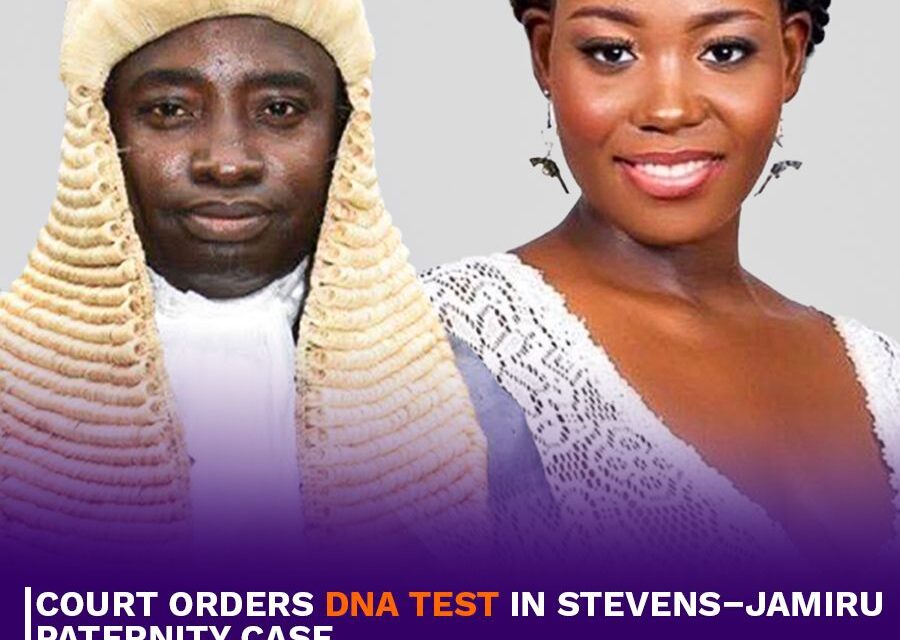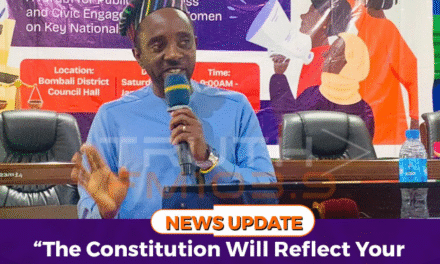Freetown, October 6, 2025 — The High Court of Sierra Leone, sitting in its Family and Probate Division, has, in an 8-page document, issued a formal order for a DNA test to determine the paternity of a minor child at the centre of a civil dispute between Mr. Mohamed Alhaji Momoh-Jah Stevens and Ms. Edwina Hawa Jamiru.
The matter, filed under Miscellaneous Application No. 233/25, was brought before Justice Augustine K. Musa (J) under Section 83 of the Child Rights Act No. 7 of 2007, which provides for confirmation of parentage in cases involving children.
In his originating summons dated May 2, 2025, the plaintiff sought multiple reliefs, including:
- A court-directed DNA test to confirm whether he is the biological father of the child born on April 10, 2025.
- An order compelling the defendant to submit herself and the child for sample collection.
- A maintenance order, contingent on the DNA results, to support the child until age 18.
- A series of injunctions restraining the defendant from publishing or disseminating details of the case or taking actions that could harm the plaintiff’s reputation or privacy.
Initial interlocutory orders, including a gag order, were granted on May 14, 2025, pending full determination of the application. However, the substantive request for a DNA test remained undecided due to procedural delays and the defendant’s absence at several hearings.
On October 1, 2025, both parties appeared in court with legal representation. Counsel for the defendant, Ms. W. Hughes, requested an adjournment to confer with her client and prepare a response. The court granted the request in the interest of fairness, despite confirming that the defendant had previously been served with all relevant documents.
However, on the next hearing date, Ms. Hughes withdrew her representation, citing limitations in her organization’s mandate, which only covers criminal matters. The defendant, now unrepresented, opted to respond under oath and expressed her opposition to the DNA test.
During cross-examination, the court reviewed photographic and digital evidence submitted by the plaintiff, including images and WhatsApp messages suggesting a romantic relationship between the defendant and another man during the period of her pregnancy. The defendant confirmed the authenticity of the photos but declined to comment on one of the messages.
Justice Musa, in his ruling, stated that the evidence raised legitimate doubts about the plaintiff’s paternity and emphasized that denying a DNA test under such circumstances would be unjust. He noted that the application was grounded in law and aligned with the provisions of the Child Rights Act.
The Court Ordered the DNA Test with Strict Protocols, including:
- A DNA test to be conducted on the minor child, referred to as “Ms. Edwina H. Jamiru’s daughter” or “Edwina Stevens.”
- Sample collection from both the child and the defendant, to be carried out by both a local and foreign accredited genetic testing laboratory.
- Oversight of the testing process by the Master and Registrar of the High Court.
- Optional presence of representatives from the Ministry of Gender and Children’s Affairs, Human Rights Commission, and women’s organizations during sample collection.
- Cross-examination of the laboratories on their procedures and results.
- Mandatory compliance with sample collection protocols, including enforcement if necessary.
- Completion of testing by November 10, 2025, with results submitted within 14 days.
- All costs to be borne by the plaintiff.
The matter has been adjourned to November 27, 2025, for presentation of the DNA results and issuance of final orders.
Justice Musa concluded by affirming the court’s commitment to fairness, child welfare, and legal due process, stating that the DNA test is the most appropriate step to resolve the dispute.









